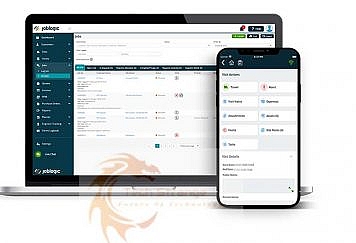If you’re planning to start a retail business, you will want to know what type of entity you should choose. There are three different types of entities available for retail businesses: Sole Proprietorship, Partnership, and Corporation.
This guide will explain each of these three entities and their pros and cons so that you can make the right decision for your business.
If you’re planning to start a retail business, you will want to know what type of entity you should choose. Deciding on the right entity is a crucial step in company formation and can impact your operations and growth significantly. There are three different types of entities available for retail businesses: Sole Proprietorship, Partnership, and Corporation.
The Three Main Entities
Retail businesses come in many shapes and sizes. There are small mom & pop shops, big box stores, specialty boutiques, and everything in between.
Within these variations, there are only three main entity types of retail businesses: Sole Proprietorships, LLCs, and Corporations.
Let’s peek a little bit into each type of entity.
1. Sole Proprietorship
A Sole Proprietorship is owned and operated by one person. This means that there is no formal board of directors, shareholders, or officers.
Pros:
- No formal structure
- Ownership is personal
- Can operate without a license
Cons:
- No liability protection
- It May be difficult to obtain financing
- Difficult to expand
2. LLC
LLC or Limited Liability Company is a hybrid form of business organization. It has the best features picked out from all the other forms of business entities, including liability protection.
This means that any liability arising out of your business can’t be attached to your personal property.
An LLC allows for easier expansion since it’s a legal entity and more secure than a Sole Proprietorship. In addition, an LLC also offers pass-through taxation features like Sole Proprietorship.
Pros:
- Limited liability protection
- Easier to obtain financing than a Sole Proprietorship
Cons:
- More complicated than a Sole Proprietorship
- Difficulty going public as compared to Corporations
3. Corporations
Corporations are companies that have been formed under state law. They are governed by a board of directors, shareholders, and officers.
They’re formal business entities with rigid structures and stringent requirements. These include filing annual reports and paying corporate income taxes. However, they’ve got several advantages too.
Pros:
- Best liability protection
- Possess legal rights and privileges
- Can issue employee stock options and go public with ease
- Easier to obtain financing
Cons:
- It May be subject to audits
- Required to file annual reports
- Subject to double taxation
- Costly to run
Which One Should You Choose?
Now it’s time to decide which one of the entity types fits your retail business. The answer depends on several factors including your goals, current situation, and future plans.
If you don’t plan on expanding the business, Sole proprietorship may be the best option for you as you won’t have big liabilities.
If you’re planning on starting a retail business with the goal of selling products and services online, then forming an LLC with GovDocFiling would make sense.
A Corporation may be beneficial if you want to sell products offline. But it takes a lot of work, so it’s important to weigh the pros and cons before making this decision.
The bottom line is that each entity type comes with different advantages and disadvantages. To learn more about these entities, check out the infographic below.
Follow TechStrange for more Technology, Business, and Digital Marketing News.

Author Bio:

Brett Shapiro is a co-owner of GovDocFiling. He had an entrepreneurial spirit since he was young. He started GovDocFiling, a simple resource center that takes care of the mundane, yet critical, formation documentation for any new business entity.





